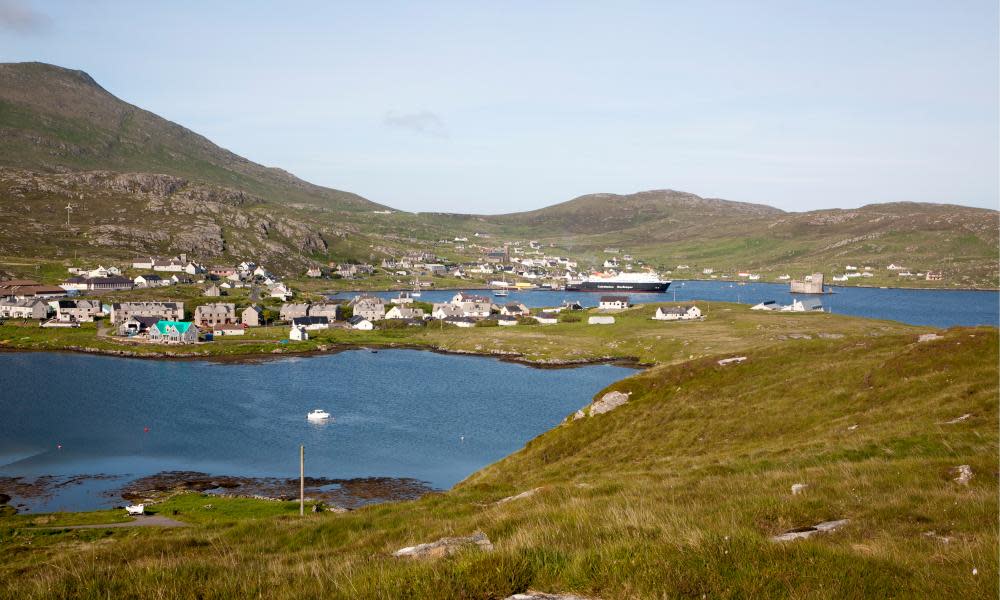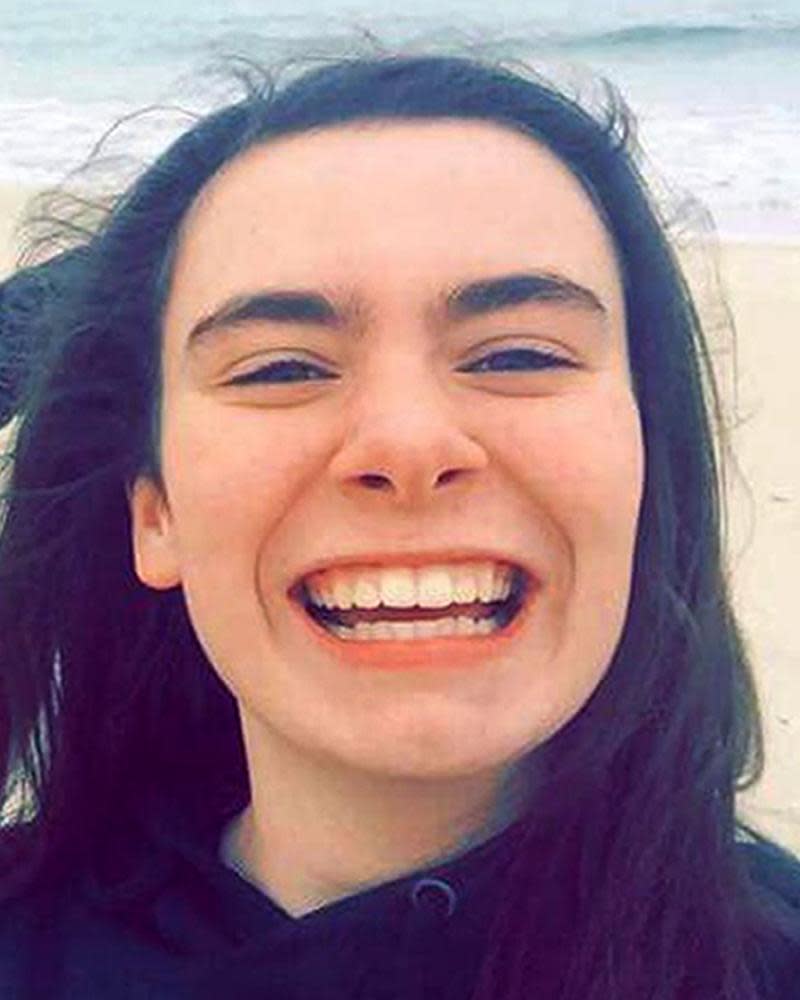‘On Barra, in the Western Isles, no one has been untouched by Eilidh’s death’

In a dark week, a small symbol of light and hope twinkles defiantly in the west. It’s to be found in Barra, in the Outer Hebrides, where a continent ends and an ocean begins. The light is from a single candle and it gently illuminates a framed picture of Eilidh MacLeod and Laura McIntyre, two young local girls who travelled south to Manchester last week to see a pop concert. Laura, 15, remains there still, her injuries from the bomb attack in the Manchester Arena keeping her in an intensive care ward. Her friend Eilidh died in the blast, and the small island community is waiting to bring both of them home.
Their photograph sits in the lobby of the Isle of Barra Beach Hotel. Proprietor Guy Evans, who runs it with his wife Teresa, says: “We’ll keep the picture up and the candle burning until they are both ready to come home, though we know that in Eilidh’s case it’s to then say farewell to her.
“On Barra no one has been untouched by Eilidh’s death; there is an interconnectedness here that binds everyone together and we will all gather round Eilidh’s family and Laura’s too and love and support them.”
Two miles further along a largely single-track road that circumnavigates Barra is the village of Castlebay, where the girls went to school. This little 14-mile road demands and expects courtesy from its users; the process of giving way to others or acknowledging civility is endless. As you approach Castlebay you experience your first stab of emotion as you watch schoolgirls wending their way home over grass and streams after a day of lessons. And you realise only a few days ago Eilidh MacLeod and Laura McIntyre would have been with them. In Castlebay history both ancient and merely old stoops to greet you around every corner. Here’s the pub where the locals drank in the making of Whisky Galore; and across the street an ancient drystane dyke which, according to local legend, described the bounds of the first ever croft. The bay has a medieval castle in the middle of it. And there, perched on a hill overseeing all is the church of Our Lady Star of the Sea. It’s at the centre of this community, both physically and spiritually; its setting between hill and sea lending it an ethereal beauty unequalled beyond these shores.
Life in the Western Isles of Scotland proceeds and is formed by the rhythms of the seasons. When death has occurred at sea or by the side of a cliff perhaps there is an acknowledgment that this is part of the natural cycle of life here; a benediction for the gifts of the land and the sea. The memories of those who have been lost like this can be carried on the winds that roar in from the Atlantic. But there can be no consolation or sentiment about young lives extinguished in Manchester by an act of pure evil, made more terrifying by its banal wickedness.

Roman Catholic parish priest Father John Paul Mackinnon is talking quietly in his small visitors’ room, a kindly man with a gentle voice and a quiet wisdom that will be needed in the weeks and months ahead. Last Wednesday he and the Church of Scotland minister, the Rev Dr Lindsay Schluter, conducted a joint service. More than a third of the population of Barra and Vatersay (the even tinier island south of Barra) attended, a figure that would have been higher but for shift patterns and the other demands of industry.
“Barra and Vatersay is a community steeped in its faith,” says Mackinnon. “It’s a gentle community and it asks only to be treated gently in return. These islands though are not immune from death and tragedy, how can they not be, surrounded by water and bounded by mountains?
“But this is something else again,” he says, his voice conveying bewilderment and grief. “This is an encounter with evil. On Barra there is no sense of fear for our children. Parents let their children play freely here knowing that everyone feels a sense of responsibility for them. What happened to our two girls in Manchester is just inconceivable and evil has come to our doorstep.
“The island though, has been touched by the messages of support from every corner of the world. People who have stayed in guest houses and hotels and been to church here remember it fondly and so little messages have been sent and emailed all through the week. We have all drawn strength from this.
“We are accustomed to being outside looking in on a world on which we are at the edge of things. It can be a little disconcerting to find ourselves being looked at from outside. But this is a very resilient community and we’ll come through this. The families are being surrounded by love and in their own time we’ll welcome them home with open arms and be there for them.”
Schluter is minister of the Barra and South Uist Church of Scotland parishes, which have a close bond with their Catholic neighbours. She has been on the island for barely a year but has already been affected by the reserves of resilience and fortitude which these islands possess. “They have a spiritual and emotional strength which has probably evolved over generations of dealing with hardship,” she says.

“And while at times like this they draw closer and put feuds and disagreements away these people are not the sentimental and emotional figures that exist in the imaginations of Hollywood scriptwriters. Not many who live here haven’t also travelled widely and lived in other places.”
She points again to the resilience of a community which in the midst of this tragedy nevertheless knows that many people will visit these islands for a holiday and a break. “The island has to continue to function and the islanders have not and will not impose their grief on them, but they have been touched by the kindness of strangers too.”
When Laura returns home to continue her recovery from her injuries and when Eilidh returns for her final farewell, the grieving will start all over again. “In this place the custom is to hold a funeral within 24 or 48 hours of death so we must wait, and that is after the wait to discover Eilidh’s fate. But you learn to wait and be patient in these places because the uncertain weather dictates that you must,” she says.
In time, Laura will return to her school in Castlebay where a year group may only consist of a handful of children. In this place too the absence of her friend will be felt keenly, but here too she will be helped in her own recovery.
At Saturday morning mass at Our Lady Star of the Sea, a group of the faithful gathered to worship and to pray for the families of Eilidh and Laura. In the visitors book messages have been left over these last few days from Argentina, Poland, Wales, Yorkshire and California, expressing love and promising prayers. “Thoughts and prayers will be with you all in the difficult days that lie ahead. May you sense God’s presence upholding you. Holding you all in our prayers,” wrote one.
Mackinnon is waiting for the day when both families will read these messages and that they may yet provide them with a little strength.

 Yahoo News
Yahoo News 
